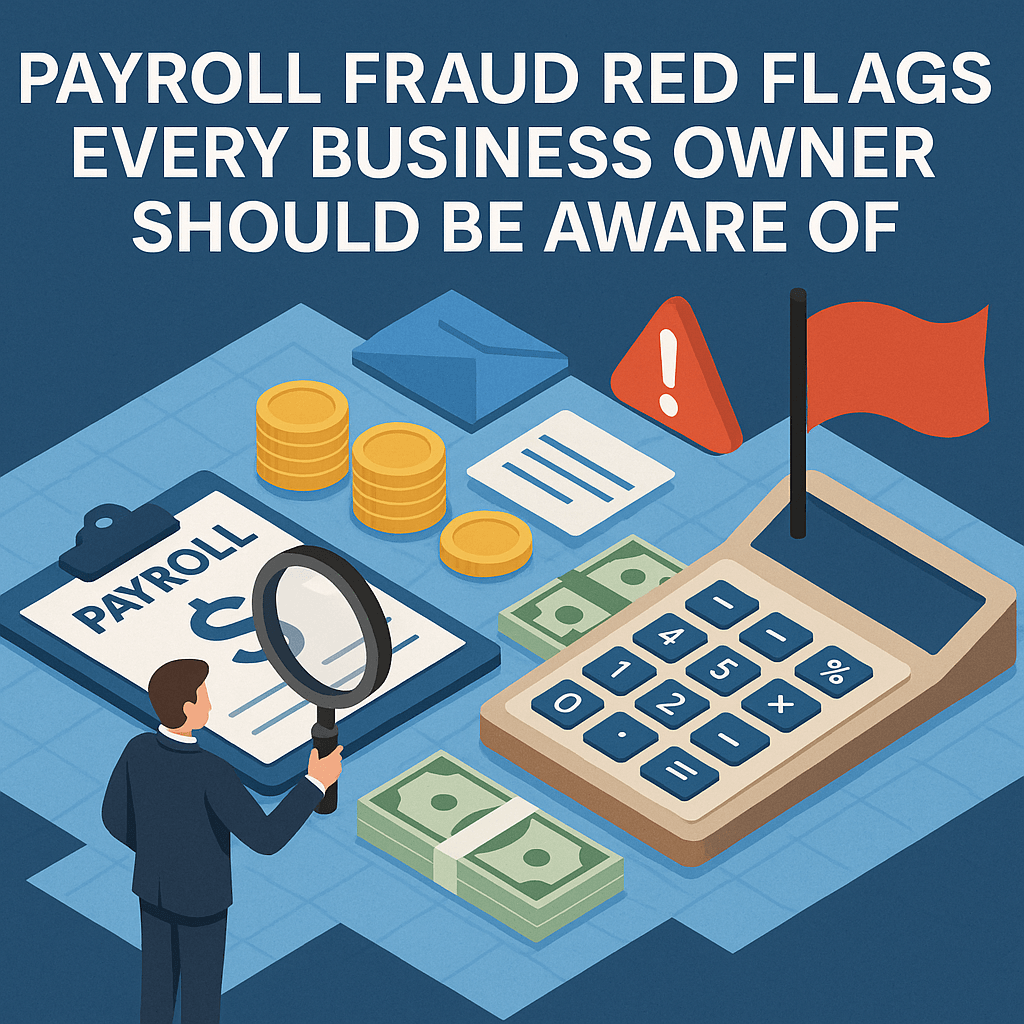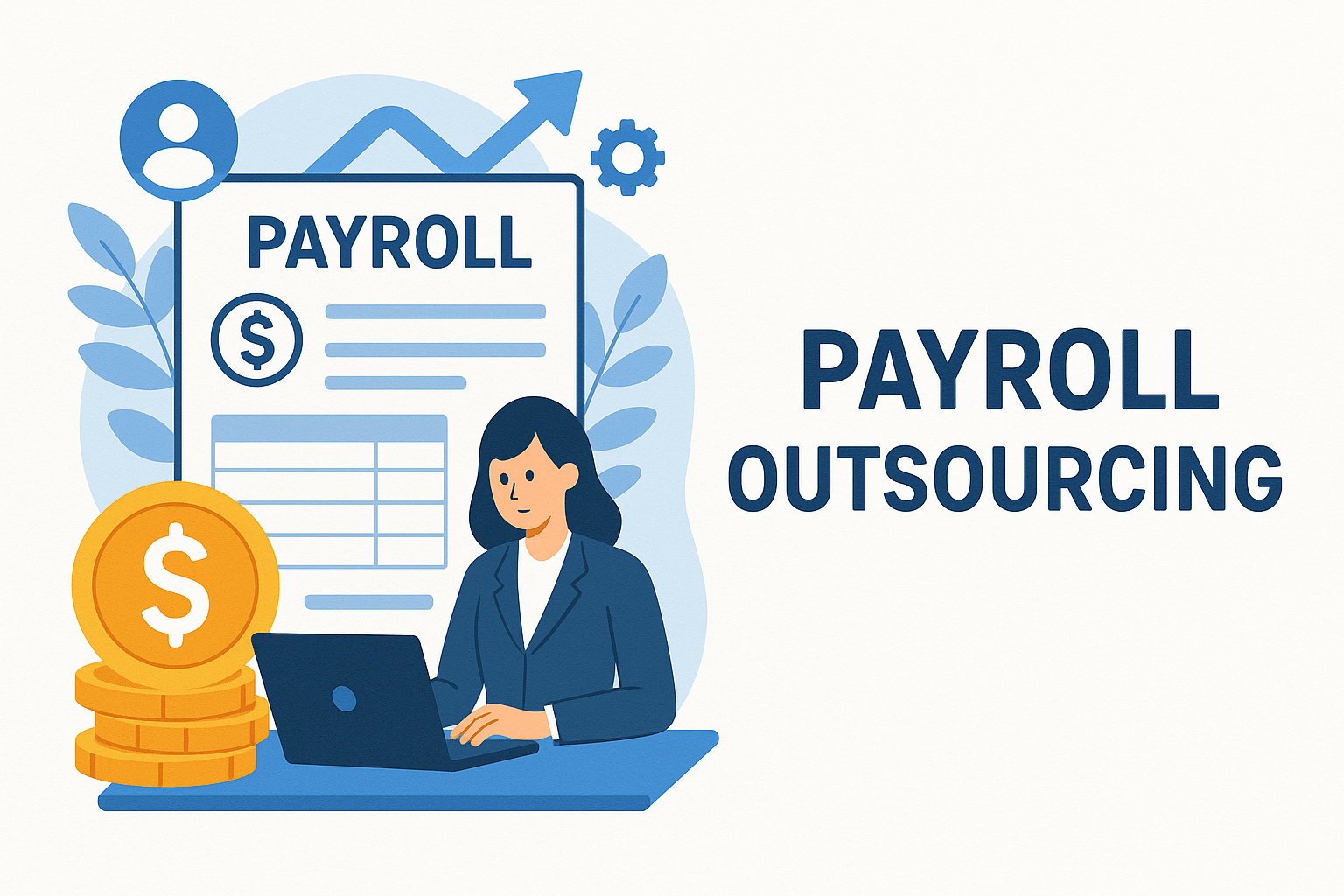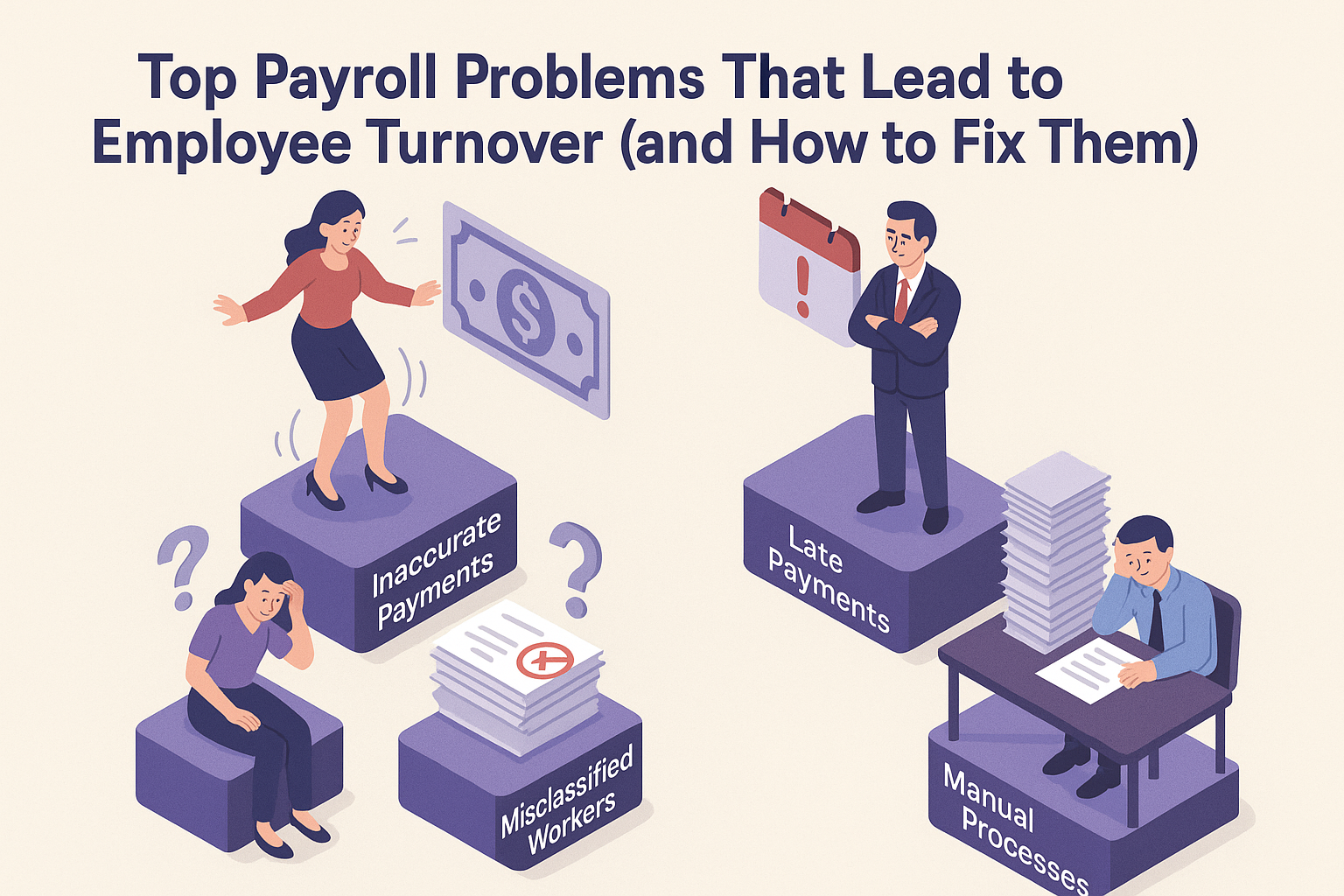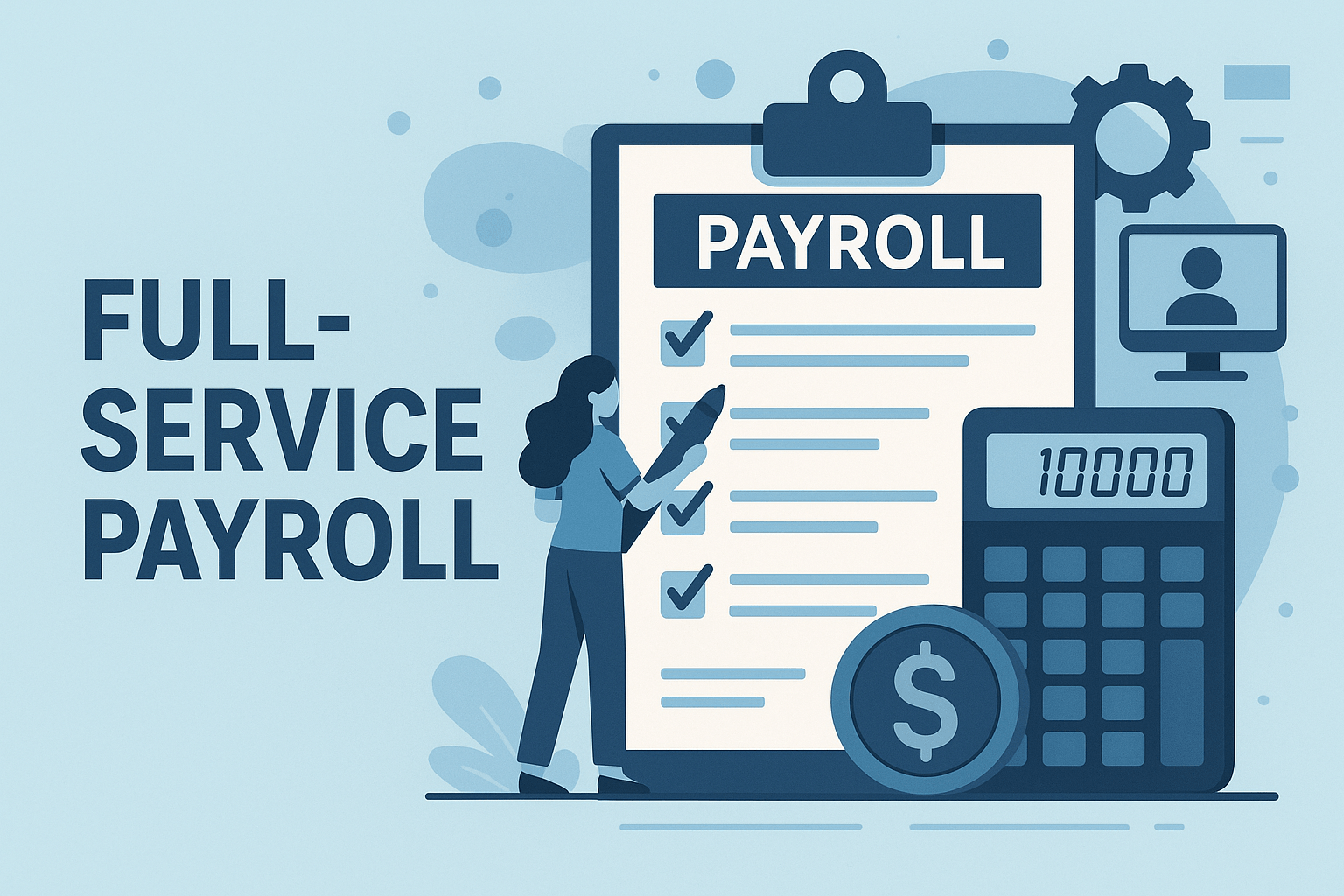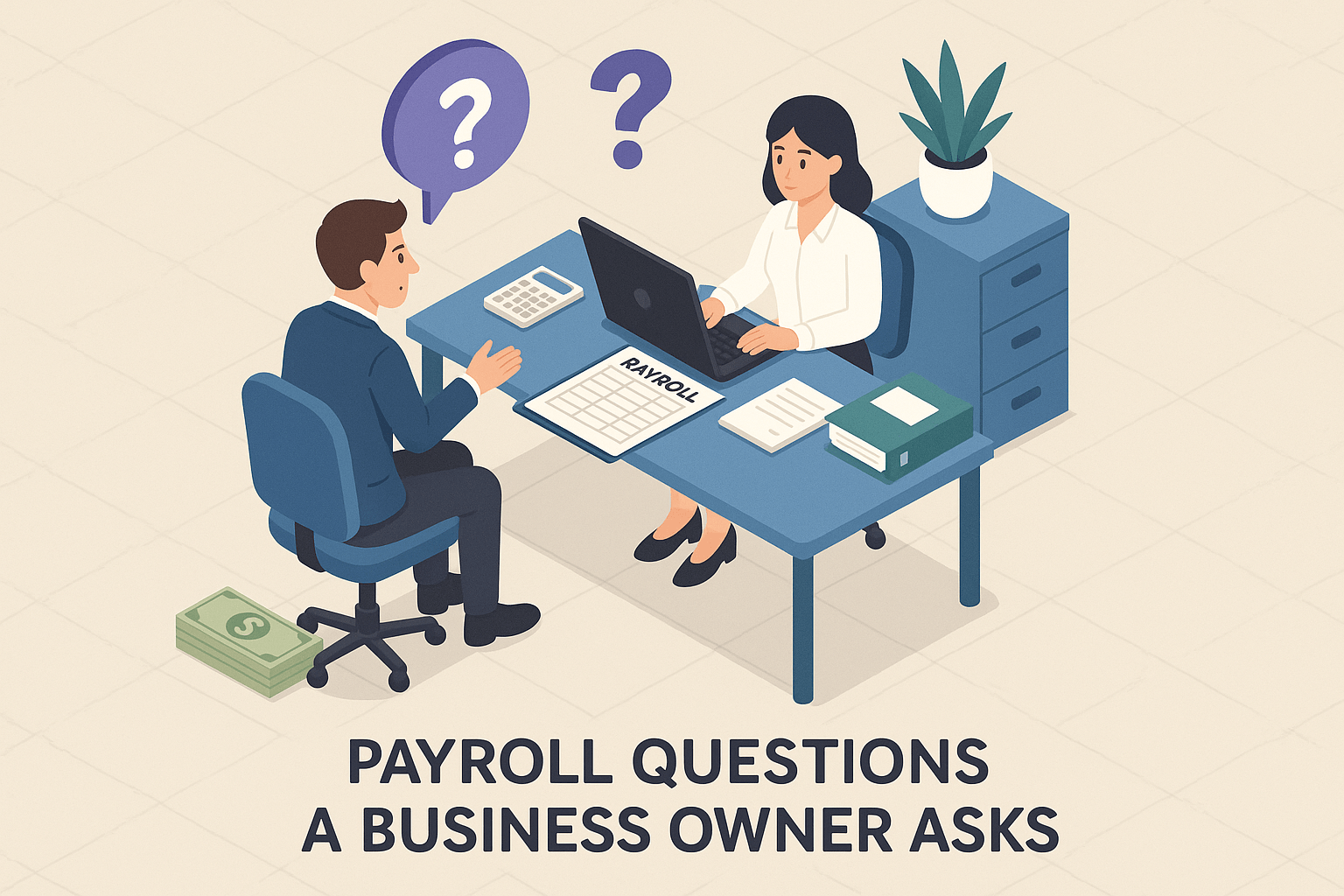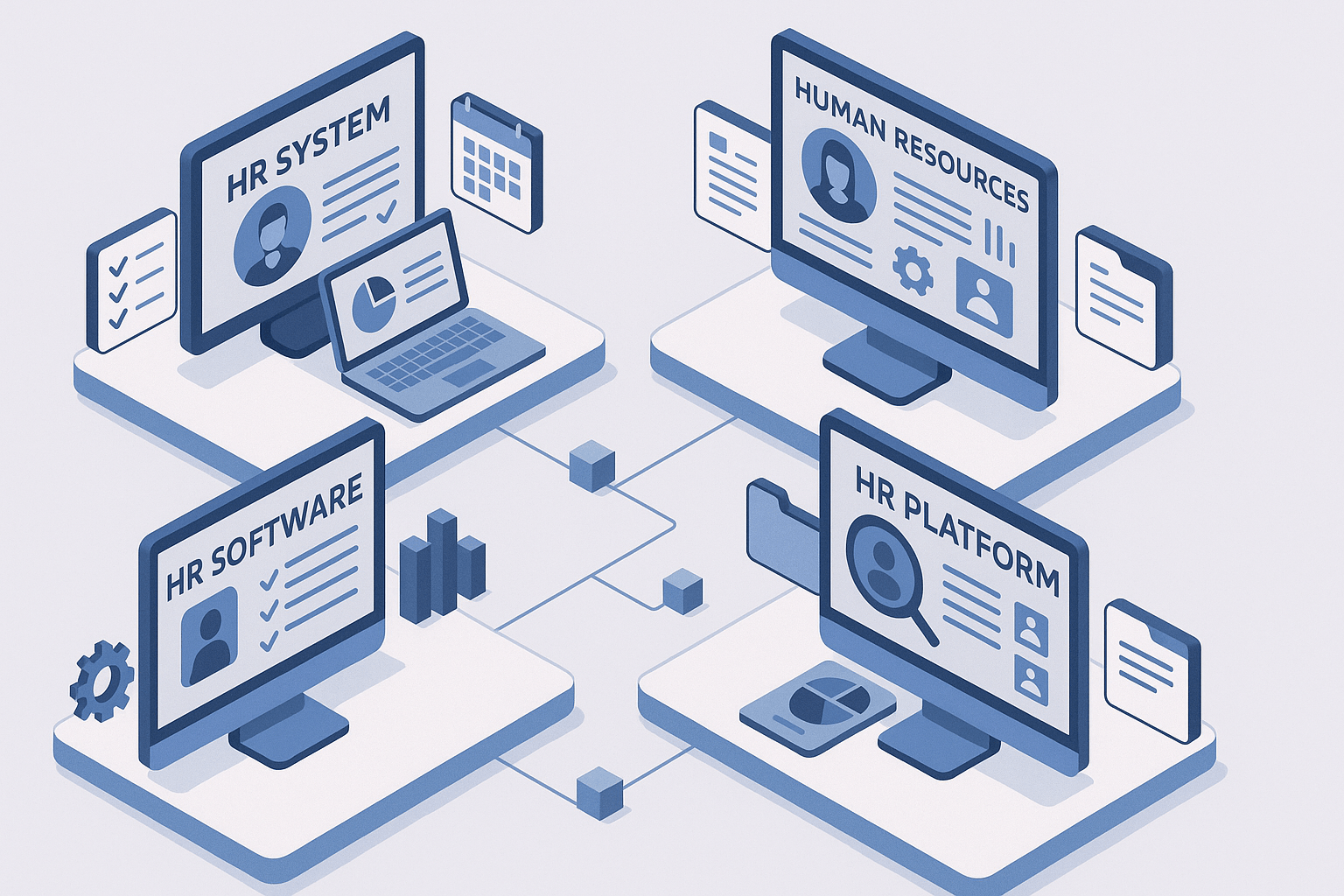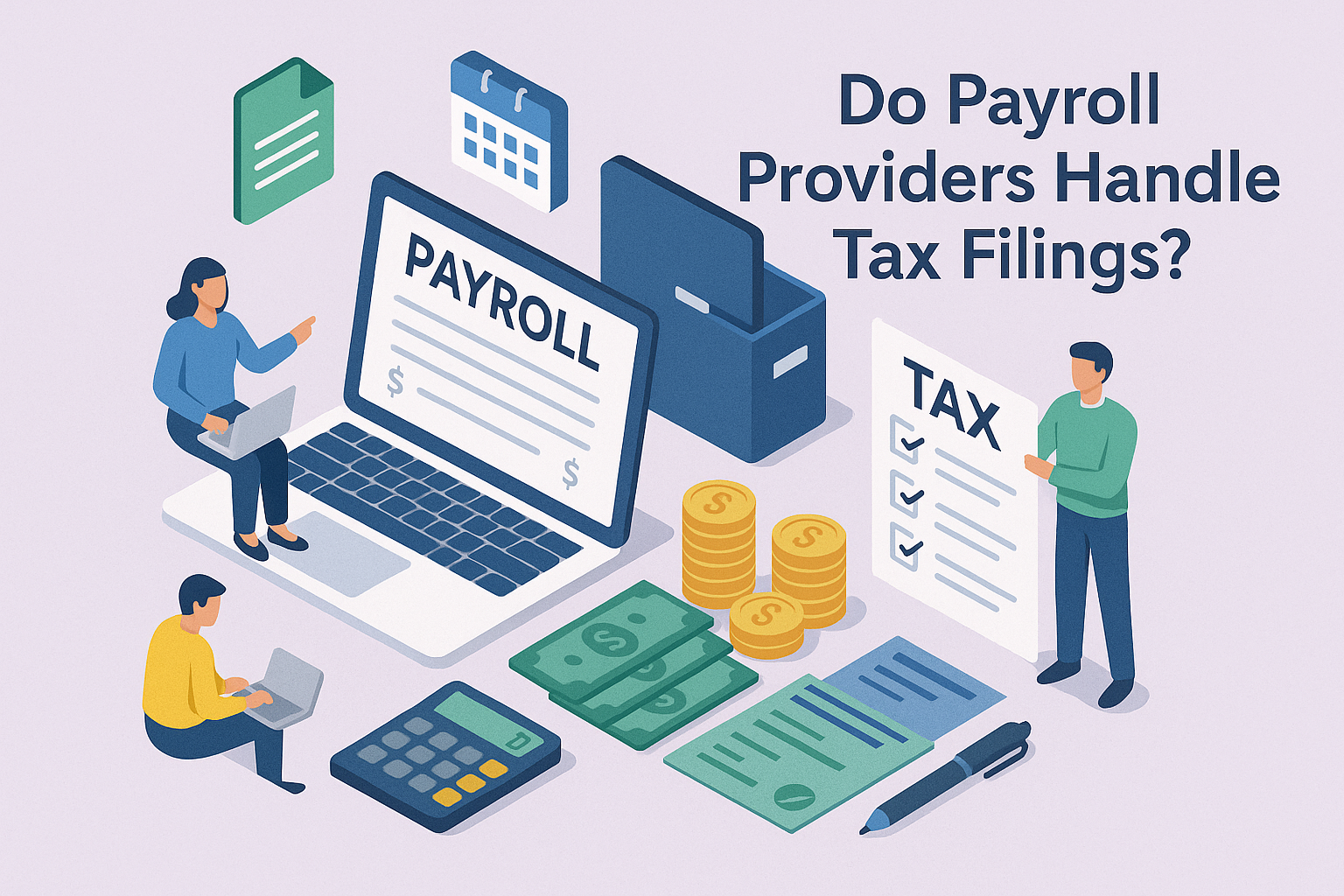
Tax Filing
- Files quarterly/annual returns
- Deposits taxes via EFT
- Issues W-2s and T4s
- Submits to tax agencies
⚠️ Critical Warning: Some providers only handle calculation and leave filing to you. Missing this distinction leads to penalties, interest charges, and compliance issues.
What Full-Service Payroll Tax Filing Covers (and What It Doesn’t)
A full-service payroll provider manages payroll tax filing end-to-end. Here’s what that typically includes:
-
Withholding calculations for all payroll tax types
-
Filing payroll tax returns with federal, state, and local agencies
-
Depositing taxes owed on the proper schedule
-
Preparing and distributing year-end forms to employees and agencies
-
Monitoring tax law changes and updating systems automatically
-
Responding to agency notices related to filings they’ve processed

💡 Pro Tip: Always request a written list of covered agencies and tax types. Some providers limit services by jurisdiction.
Common Payroll Tax Filing Exclusions to Watch For
Even providers that advertise “full-service payroll” may exclude certain services — or charge extra for them. Understanding these exclusions upfront can save you from surprise fees and compliance gaps.
| Potential Exclusion | What It Means | Typical Cost |
|---|---|---|
| Amendments for prior periods | Corrections to past filings | $50–$200 per amendment |
| Specialty tax filings | Industry-specific forms (e.g., construction, nonprofit) | Varies widely |
| Certain local taxes | Unsupported city or county filings | Manual filing by client |
| Out-of-cycle adjustments | Payroll changes outside the normal schedule | $25–$100 per run |
| Fringe benefit taxation | Special year-end tax treatment for perks | $50–$150 |
These exclusions don’t necessarily mean a provider isn’t right for you — but they do mean you should know exactly what’s included before signing a contract.
How Amendments and Agency Notices Are Handled
Even with the best payroll systems, mistakes can happen. When they do, how your provider responds matters.
How Amendments Work:
An amendment is a corrected tax return submitted to fix a previous filing. The process typically looks like this:
-
Error Identified: Either internally or via a tax agency notice
-
Root Cause Analysis: Provider determines if the error was theirs or due to incorrect client input
-
Amendment Preparation: Corrected return is prepared and verified
-
Submission: Amendment is filed electronically or mailed, depending on agency requirements
-
Confirmation: Agency acknowledgment is received and stored
-
Fee Determination:
-
If the provider made the error → amendment is free
-
If it was client input → amendment billed per contract
-
How Agency Notices Are Handled:
Tax agencies may issue notices for mismatched data, missing payments, or random audits. A full-service provider will:
-
Receive and review the notice on your behalf
-
Respond directly if it relates to filings they processed
-
Keep you informed throughout the resolution process
A calculation-only provider, on the other hand, will typically forward the notice to you — and may offer assistance only for an additional fee (often $200+/hour).

Multi-State and Local Payroll Tax Filing Complexities
If your workforce spans multiple states or localities, payroll tax filing becomes significantly more complex. A full-service provider can help you stay compliant without the headache.
Key complexities include:
-
Different filing schedules: Some states require monthly deposits, others quarterly
-
Local tax rules: Cities like Philadelphia and New York have their own payroll tax systems
-
Reciprocity agreements: Employees living in one state and working in another may require special handling
-
Registration requirements: You must register with each tax agency before filing begins
Providers that lack multi-jurisdiction support leave you managing separate accounts, portals, and deadlines — an administrative burden with real compliance risk.
| Service Element | Provider A (Full-Service) | Provider B (Calculation Only) |
|---|---|---|
| Tax Calculations | Included | Included |
| Filing Returns | Included | Not included |
| Tax Deposits | Included | Not included |
| Amendments (Provider Error) | Included | $150 each |
| Agency Notice Response | Included | $200/hour |
| Multi-State Filing Support | Included | Limited |
| Local Tax Filings | Included | Not included |
Why Payroll Tax Filing Matters for Compliance and Risk
Accurate, timely payroll tax filing isn’t just a best practice — it’s a legal requirement. Mistakes can have lasting consequences:
- Penalties: Federal penalties for late deposits range from 2% to 15% of the unpaid amount (IRS)
- Cash flow impact: Missed deposits often require immediate, lump-sum payments
- Increased scrutiny: Repeated errors can lead to audits and stricter oversight from tax agencies
A true full-service payroll provider helps you mitigate risk, not just save time.
Payroll Tax Filing Q&A: What Business Owners Need to Know
Q: Why is payroll tax filing such a big concern for business owners?
A: Payroll tax mistakes—like filing late or incorrectly—can result in penalties, interest, and audits. These setbacks can be costly and disruptive, so it’s critical to be certain your payroll provider handles the entire process accurately and on schedule.
Q: What’s the difference between payroll tax calculation and payroll tax filing?*
A: Tax calculation is the process of determining how much tax to withhold from employee paychecks. Tax filing is the separate step of submitting those calculated taxes, along with required forms, to the appropriate government agencies. Not all providers do both—some only calculate and leave filing to you.
Q: What does a full-service payroll provider like Lift HCM handle in payroll tax filing?
A: Full-service means we calculate withholdings for federal, state, and local taxes, file all payroll tax returns, deposit taxes on schedule, issue year-end forms (e.g., W-2s), respond to agency inquiries, and proactively manage amendments and agency notices. You get end-to-end support and compliance oversight.
Q: What services are typically included in full-service payroll tax filing?
A:
- Federal, state, and local tax calculations
- Filing payroll tax returns with agencies
- Making tax deposits via Electronic Funds Transfer (EFT)
- Issuing year-end tax forms (W-2, T4, etc.)
- Handling amendments and agency correspondence
- Ongoing compliance monitoring and updates
Q: What services are often excluded or billed separately—even with “full-service” providers?
A: Common exclusions may include prior period amendments, specialty tax filings for certain industries, some types of local taxes, out-of-cycle payroll adjustments, and special fringe benefit taxation. Always confirm what’s covered before you sign a contract.
Q: How much might exclusions cost if they’re not bundled?
A:
- Amendments for prior periods: $50–$200 per amendment
- Out-of-cycle adjustments: $25–$100 per run
- Fringe benefit taxation: $50–$150
- Specialty filings or some local taxes may vary or require manual filing by the client
Q: If an error happens, who pays for the correction?
A: If your provider made the mistake, an amendment should be free. If the mistake was due to client input (for example, incorrect data provided to the payroll company), you’ll pay according to your contract.
Q: How should a payroll provider handle tax agency notices or audits?
A: A true full-service provider will receive notices on your behalf, respond directly if they handled the filing, and keep you updated throughout. A calculation-only provider may simply forward notices to you and charge for any assistance.
Q: What are the unique challenges of multi-state or local payroll tax filing?
A: Different states and cities have unique deposit schedules, local tax rules, and agency requirements. Employees working across state lines may need special handling due to reciprocity agreements. If your provider lacks multi-jurisdiction support, you’re left managing separate accounts and deadlines—creating compliance risk.
Q: Why is it important to confirm your provider’s definition of “full-service”?
A: Some providers use “full-service payroll” loosely but exclude key items or jurisdictions. Always ask for a written list of the agencies and tax types covered to avoid confusion or surprise fees later.
Q: What are the risks of choosing a payroll provider that doesn’t file (or only calculates) payroll taxes?
A: You may be responsible for missed filings, unsubmitted payments, and handling all correspondence with tax agencies. This exposes your business to penalties, interest, cash flow disruptions, and increased scrutiny from regulatory agencies.
Q: What are the tangible consequences of payroll tax mistakes?
A: Federal penalties for late deposits can range from 2% to 15% of unpaid taxes. You may face lump-sum catch-up payments, audits, and ongoing compliance oversight—plus the time and stress of resolving the issues.
Q: How does Lift HCM minimize these risks for clients?
A: We manage every step—from calculation and filing to responding to agencies—ensuring deadlines are met and compliance is maintained. Our team provides proactive communication, real-time support, and built-in checks so you don’t have to worry about surprise setbacks.
Have another payroll tax question or want clarity on what’s included in your service? Reach out to your dedicated Lift HCM representative—our expertise is your peace of mind.
Note on Visual Content: Process diagrams and workflows in this article illustrate standard industry practices. Individual provider offerings may vary. Contact Lift HCM for detailed information about our specific service coverage and pricing!
Why Payroll Tax Filing Clarity Matters—And How Lift HCM Delivers
Choosing a payroll provider isn’t just about finding someone to run the numbers—it’s about protecting your business from costly compliance missteps and enjoying true peace of mind. As we've discussed, the terms “full-service” and “tax filing” can mean very different things depending on the provider. Overlooking the details can leave you facing penalty notices, manual filings, or unexpected fees.
At Lift HCM, we believe payroll tax filing should be seamless, transparent, and handled with the diligence your business deserves. Our dedicated team manages every aspect of the process—from precise calculations to timely filings, proactive communication, and responsive support whenever questions or agency notices arise. This approach keeps your business compliant, your employees confident in their paychecks, and your focus where it belongs: on growth, not government paperwork.
In today’s regulatory landscape, clarity and accountability make all the difference. Be sure you know what’s included—and what isn’t—before you sign on the dotted line. If you’re ready for a payroll partner that puts your compliance and success first, reach out to Lift HCM. We’re here to lift the burden, so you can lead your business forward with confidence.






.png?width=1536&height=1024&name=Create%20a%20background%20that%20reads%2c%20How%20Long%20to%20Keep%20P%20(1).png)



